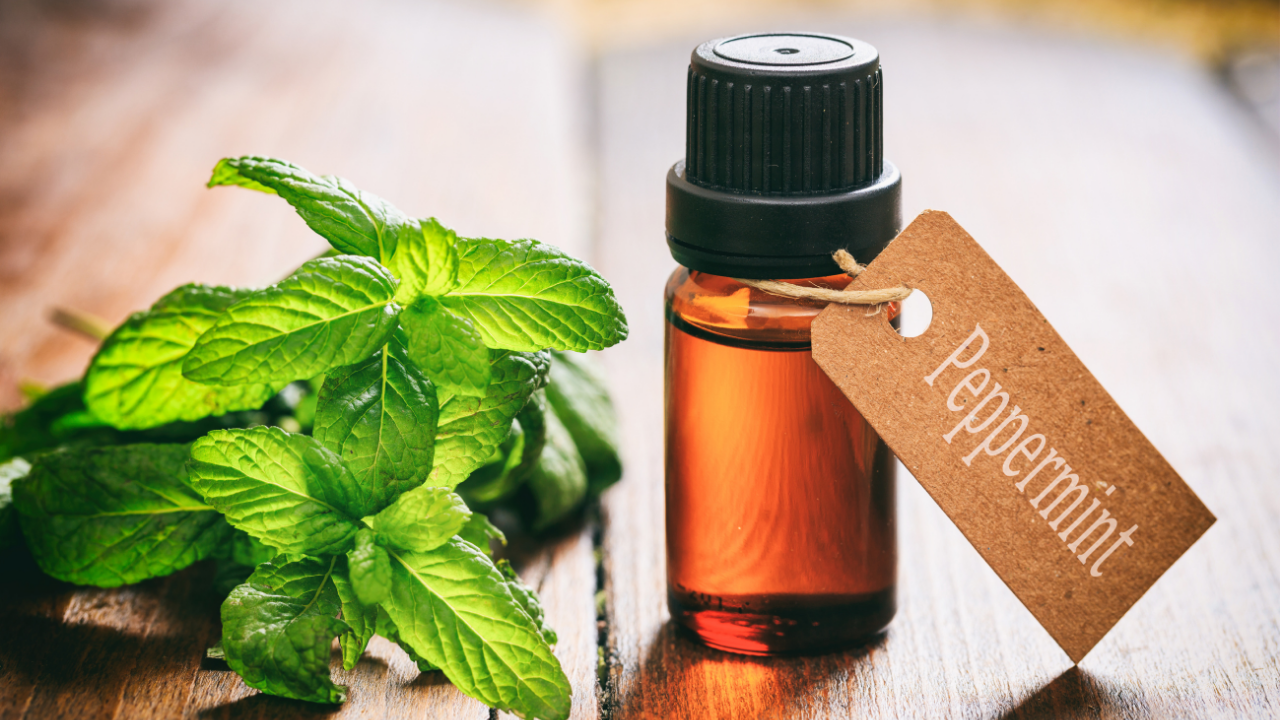
From candy canes to minty hot cocoa, ‘tis the season to experience the power of peppermint.
Although it’s best not to overdo it when it comes to sugary treats, don’t rule it out entirely as this aromatic plant has a number of health benefits! Peppermint can also be used in teas, salad dressings, in your meals, and can be used in the form of peppermint extract.
Here are 5 reasons why you should use this superfood during the holiday season:
Improve Digestive Health
Ever wonder why some restaurants give you an after-dinner mint? This is because peppermint may relieve digestive symptoms, such as gas, bloating and indigestion. A review of nine studies in 926 people with irritable bowel syndrome (IBS) treated with peppermint oil for at least two weeks concluded that peppermint provided significantly better symptom relief than a placebo[1]. Additionally, in a review of 14 clinical trials in nearly 2,000 children, peppermint reduced the frequency, length and severity of abdominal pain[1].
May Help with Headaches
The active ingredient in peppermint, methanol, improves blood flow and provides a cooling sensation, possibly easing pain[2]. A study with 41 people showed that peppermint oil applied to the forehead was found to be as effective for headaches as 1,000 mg of acetaminophen (Tylenol). You heard that right.. Next time you have a headache (which is not uncommon during the stressful holiday season), apply a few drops of peppermint oil to your forehead to relieve the pain.
Anti-inflammatory Properties
Peppermint has antibacterial and anti-inflammatory properties. Because of this, peppermint tea may fight clogged sinuses due to infections, the common cold and allergies. Grandma was right — herbal teas may help stop those sniffles. In addition, peppermint contains several nutrients and is an especially good source of vitamin A and antioxidants, which can help reduce your risk of chronic diseases like heart disease, diabetes, and some cancers.
Boost Brain Function
Interestingly enough, in addition to ingesting peppermint, there are claims that inhaling the aroma of essential oils from the plant could improve brain function. One study including 144 young adults demonstrated that smelling the aroma of peppermint oil for five minutes prior to testing produced significant improvements in memory[3]. Another study found that smelling these oils while driving increased alertness and decreased levels of frustration, anxiety and fatigue[4].
Improve Oral Hygiene
Freshening up bad breath with a few mints or a piece of mint-flavored gum is a well-known go-to, but it only masks the smell for a few hours and doesn’t reduce the bacteria in your mouth that’s causing the bad breath in the first place. Next time you experience bad breath, drink some peppermint tea or even chew some fresh leaves to not only mask the smell, but to kill the bacteria as well.
Who should avoid peppermint?
People with a specific enzyme deficiency, called G6PD deficiency, should avoid using peppermint as an extract or an oil in aromatherapy. In addition, pregnant and breastfeeding women should avoid using peppermint oil because little is known about their safety during pregnancy and lactation. You should avoid applying peppermint oil to the faces or chests of babies and young children. Side effects can occur from inhaling the menthol present in peppermint oil. Peppermint oil aromatherapy can also inhibit an enzyme called CYP3A4, which is responsible for breaking down many different types of medication. If you’re taking any prescription medications, talk to your doctor before using peppermint oil.
References:
- https://www.ncbi.nlm.nih.gov/pmc/articles/PMC4606594/
- Göbel H, Schmidt G, Dworschak M, Stolze H, Heuss D. Essential plant oils and headache mechanisms. Phytomedicine. 1995;2(2):93-102.
- Nih.gov. Accessed November 20, 2021. https://pubmed.ncbi.nlm.nih.gov/18041606/
- Aromaticscience.com. Accessed November 20, 2021.
- Nih.gov. Accessed November 20, 2021. https://pubmed.ncbi.nlm.nih.gov/16767798/






